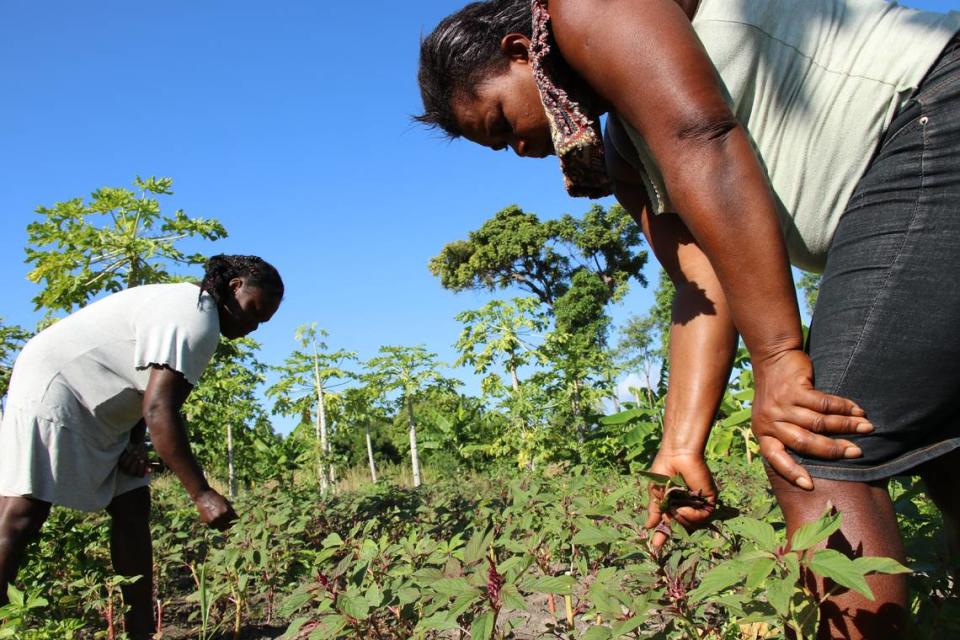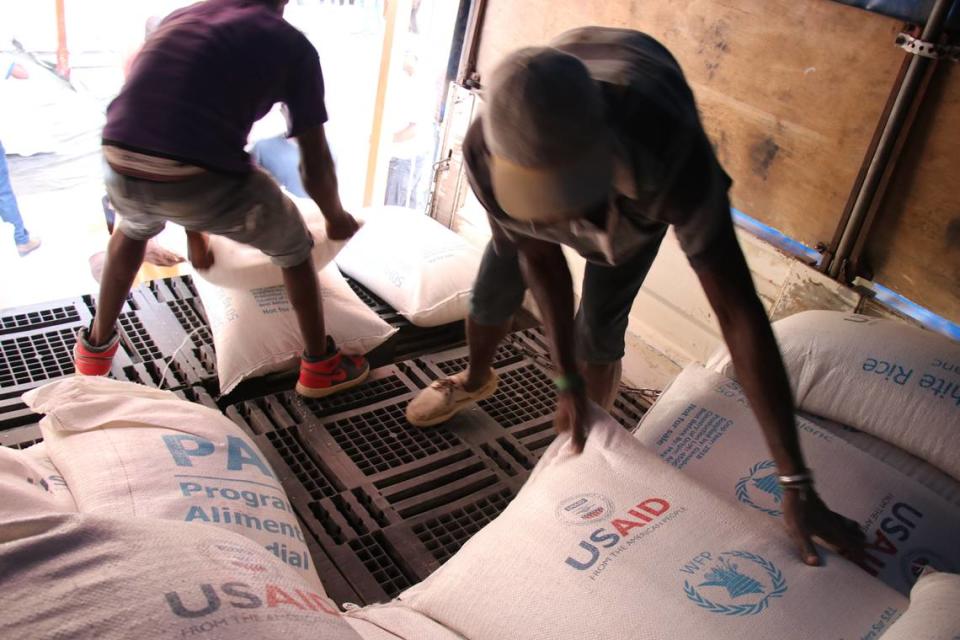‘Haiti is like the forgotten emergency.’ UN needs $62 million to combat hunger crisis
The United Nations World Food Program is scaling up emergency food assistance in Haiti, where protracted political and economic crises are fanning a humanitarian disaster.
But the available food is only enough to last until the end of the month, WFP’s regional director for Latin America and the Caribbean, Miguel Barreto, told the Miami Herald.
“We need immediate support to continue the operational plan, which means basically to reach 700,000 people during the next eight months,” Barreto said.
WFP, on Friday, issued an appeal for $62 million. The appeal and scale up in food distributions come as anti-government protests in Haiti begin to wane and and many schools in the capital of Port-au-Prince and elsewhere re-open after more than two months of a countrywide lock-down that disrupted daily life as well as humanitarian assistance.

For many poor Haitians, the situation has become even more desperate than usual, Barreto said. Food prices have risen by more than 20%, the local currency has severely depreciated and a drought has reduced agricultural yields. Add to this, the ongoing political crisis has blocked roads, bankrupt businesses and disrupted food markets.
“Haiti is like the forgotten emergency,” Barreto said. “This is a hidden crisis. In the middle of all of these humanitarian crises in African, in Asia, Haiti is out of the media because there is not a natural disaster, there is not a conflict so that’s why we are appealing. The situation is very desperate.”
Haiti needs more than remittances, U.S. ambassador says, it needs investment
According to the 2019 Global Hunger Index, Haiti suffers from serious hunger, ranking 111th out of 117 countries. The data shows that while the country had made substantial progress between 2005 and 2010 period, its ranking soon regressed.
Last month, the U.S. Agency for International Development agreed to grant an additional 2,000 metric tons of emergency food — rice, green peas and cooking oil — in Haiti through WFP. The agency said at the time, it made the decision after reviewing data showing that 3.67 million Haitians are facing either a crisis or emergency when it comes to accessing food,
Barreto, in the interview with the Herald, said he learned Friday that USAID will also provide WFP with $4 million to purchase food for next year’s hurricane season in Haiti.
Of the 3 million-plus Haitians facing a hunger crisis, Barreto said 1 million are at risk of experiencing high rates of acute malnutrition. The plan, he said, is to reach 70% of them, including individuals living in urban areas., something WFP has not done since the earthquake in 2010.
“They are really in a very bad situation,” he said.

But to accomplish any of this, the food program needs money, he stressed.
“We would like to prevent the situation from deteriorating further and create a hunger crisis in the country,” he said.
With the country experiencing a lull in the violence and protests of recent months, Barreto said they are trying to preposition food around the country and continue providing hot meals of rice and beans through its school feeding program, which feeds about 300,000 Haitian children with hot plates of rice and beans.
To help with logistics and get around road blocks, It recently commissioned a 24-seat UN helicopter.
On Friday, Barreto, who is based in Panama, traveled by helicopter to Gonaives, a city outside of the capital. Schools, he said, are still closed except for one lone school near the rural town of Gros Morne, where WFP is providing food. The school’s administrator said while other schools have been closed, they have managed to stay open for their 350 students since classes resumed in early September.

